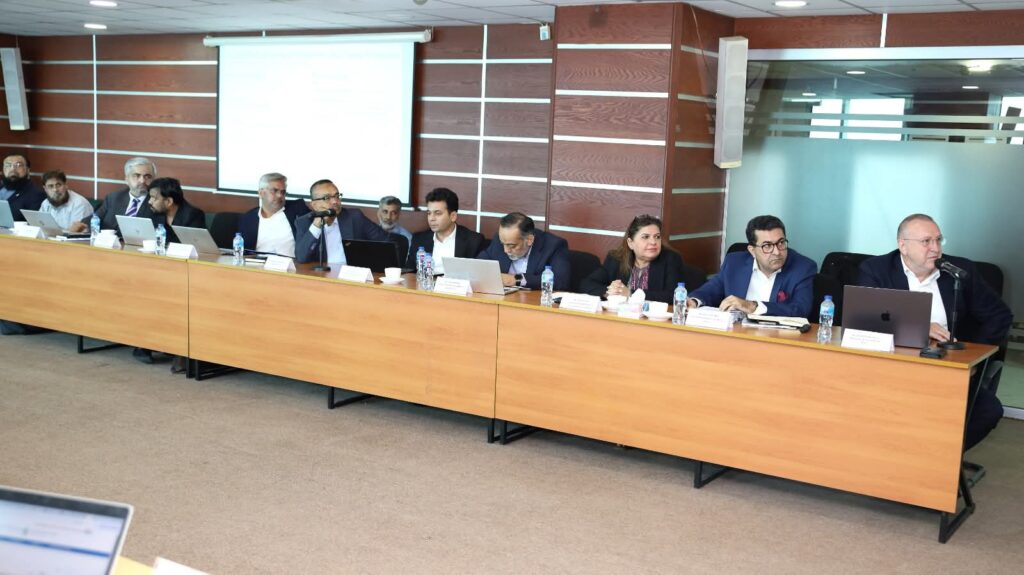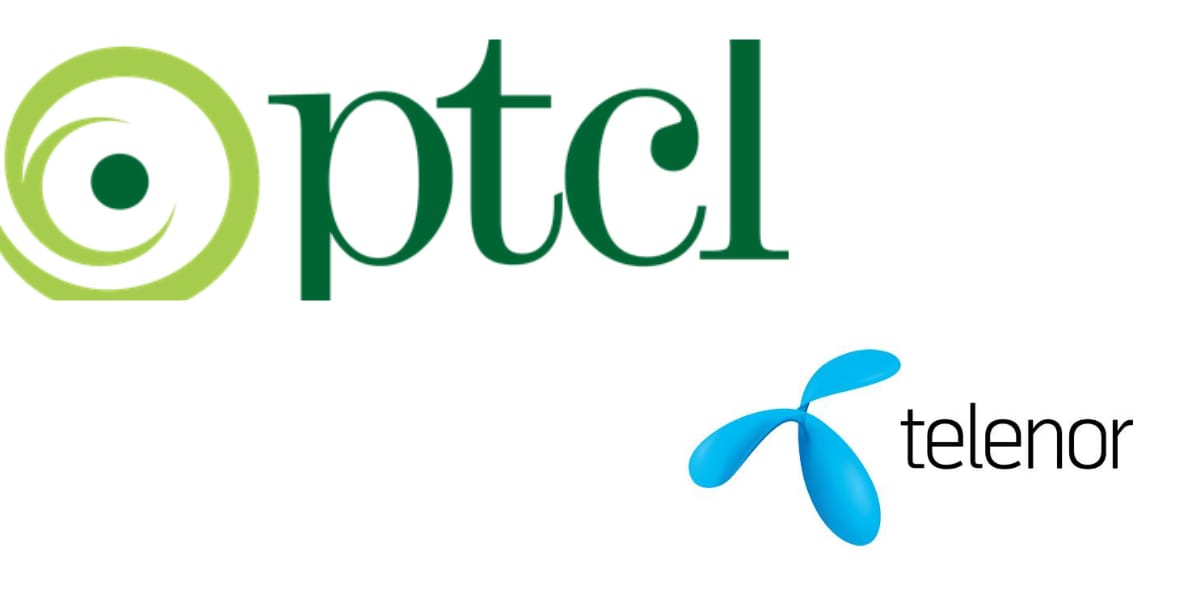The Pakistan Telecommunication Company ltd (PTCL) was Competition Commission of Pakistan (CCP) the source of funding for their participation in 5G auction.
As part of prerequisites for acquisition of the Telenor Pakistan the investment plan was scrutinised by the CCP bench headed by CCP Chairman Dr. Kabir Ahmed Sidhu, Member Salman Amin, and Member Abdul Rashid Sheikh.
The PTCL had earlier submitted a business development plan to the CCP, as the Commission had agreed to allow the acquisition of 100 percent shareholding in Telenor Pakistan (Private) Limited and Orion Towers by the PTCL, only under certain conditions.

Telnor & PTCL delegation at CCP hearing
The CCP bench raised questions on various aspects of the proposed transaction, asking about the source of investment and the expansion plans of the merged entity – Telenor Pakistan and the Ufone.The CCP had earlier raised several objections to the takeover by the PTCL including its continuous negative accounts, however, the CCP has allowed the merger on the condition of investment by the PTCL group in the telecom sector of the country.
Responding to the objections in the business plan submitted by the PTCL, the CCP had called for resubmission of the business plan and during the proceeding, PTCL presented a detailed briefing on the company’s proposed business plan, claimed efficiencies, and regulatory accounts.
The Commission sought further clarity on key issues to ensure a comprehensive assessment of the merger’s impact on competition and consumers.Meanwhile, the CCP bench was informed that the PTCL group would benefit from claimed efficiencies as the merger entity – PTCL/ Ufone and Telenor Pakistan will benefit from economy of scales, and laying off the certain access infrastructure such as towers and offices.
The CCP team also raised the issue of restrictions imposed by the telecom regulator the Pakistan Telecommunication Authority (PTA) on PTCL.
The PTA has declared the PTCL a significant market player in six out of 11 segments. However, the PTCL has challenged the decision of the PTA in Sindh High Court.
The issue of ‘Regulatory Accounts’ too was discussed in the briefing, and the CCP team noted that the revenues had continuously been in the negative for a long time and sought the reasons for the regular losses faced by Ufone, despite the fact that other telecom companies including Zong, Jazz and Telenor Pakistan were making profits.
The Commission also noted that the PTCL will not have enough financial muscle to take more loans to participate in 5G spectrum auction.
The PTCL will submit further deliberations to the CCP. Ufone was the cellular arm of PTCL group and its other entity was Ubank – a microfinance bank.
The case of acquisition has been pending since December 2023, when the announced was made by Telenor.
PTCL is a State Owned Entity (SOE)
PTCL is a state owned entity (SOE) with government of Pakistan owning 62 percent shareholding, while 12 percent shares have been floated to the public through stock market and in 2006 its management control was transferred to the UAE based telecom operator Etisalat, as they purchased 26 percent PTCL shares.Incidentally, prior to offloading the management control to Etisalt, the net profit of PTCL in 2005-06 was Rs20.78 billion, however it has been making losses since.
The recent report by the finance ministry has highlighted that PTCL was at seven position among the top loss making SOEs in the first half of previous fiscal year 2023-24.The report has also added that the PTCL had pension liabilities amounting to Rs42.84 bn against its employees.Incidentally, the finance ministry has also added that the integration of Telenor’s operations, systems, and workforce with PTCL and Ufone will be complex, raising the risk of operational disruptions, cultural clashes, and potential customer churn.
Apart from Pakistan the business operations of the Norwegian telecom company – Telenor consists of Grameenphone in Bangladesh with 55.8 percent ownership, associated companies CelcomDigi in Malaysia 33.1 percent ownership and True Corporation in Thailand 30.3 percent ownership and the regional offices in Bangkok and Singapore. Ends










